By Dev Kumar Sunuwar (CS Staff)
Seven hydropower projects along the Likhu River in eastern Nepal have adversely impacted Indigenous and local communities who live in and near the project sites but have received little attention. Likhu River is a hydropower hub and a recent field study conducted by a team from Kathmandu of the area found that the construction of these disruptive hydropower projects were shrouded in secrecy and deceit to Indigenous and local communities.
Hydropower projects are operated and planned along the Likhu River with a combined capacity of 329.6 Megawatt (MW) electricity by Kathmandu-based private investors without obtaining the Free, Prior and Informed Consent (FPIC) and without due compensation to those whose lands have been destroyed while building access roads, tunnels, and other infrastructure at the dam sites and powerhouse.
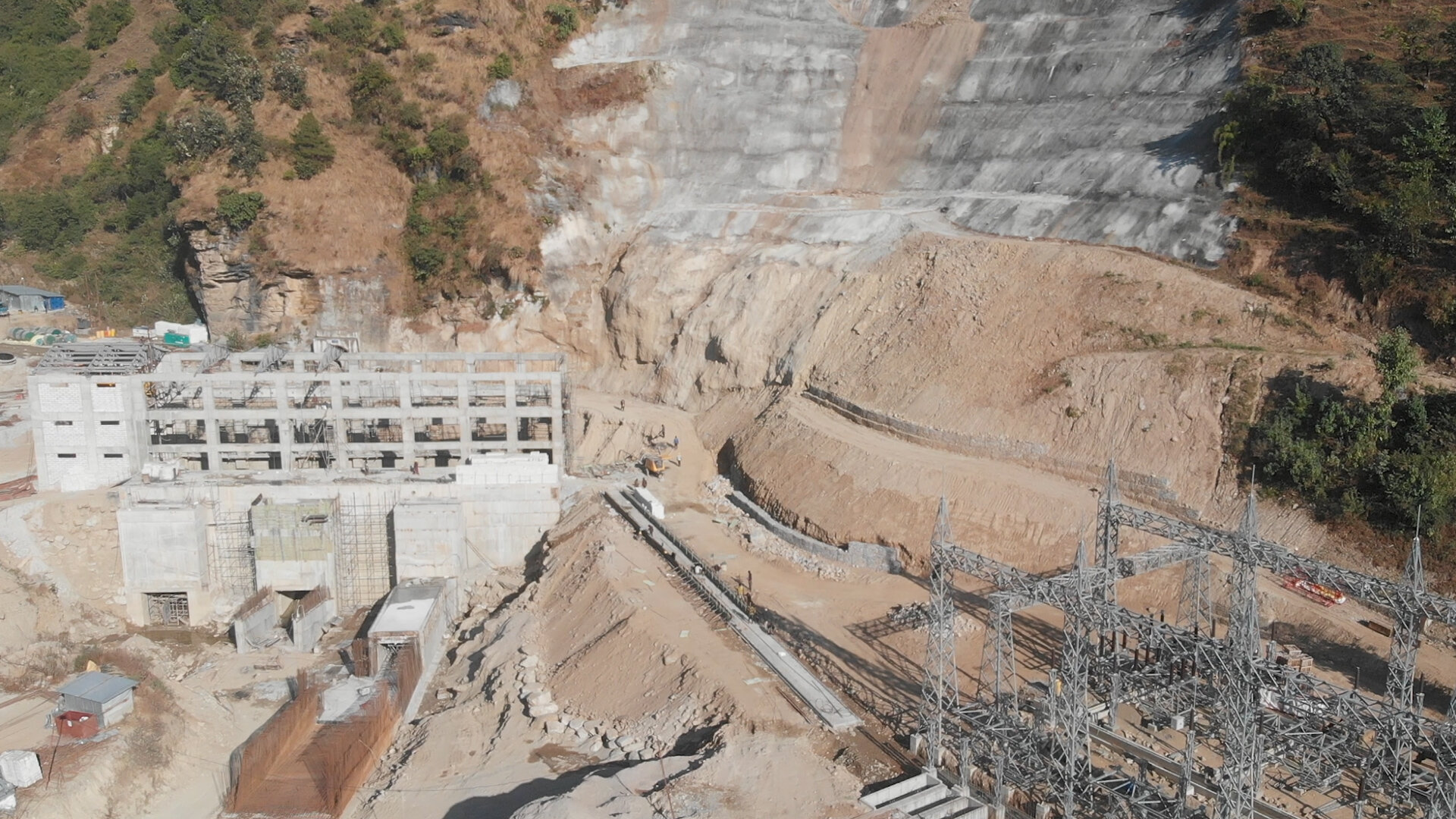
Likhu River is a glacier and the freshwater system running down from Mount Numbur (6,959m) through Ramechhap, Okhaldhunga, and Solukhumbu district in eastern Nepal. For generations, it has been stewarded and occupied mostly by Sunuwar Indigenous communities along with Sherpa and other non-Indigenous communities, namely Bahun and Chhetries. However, Indigenous and local communities have not been consulted or given their fair share of project benefits, despite shouldering the numerous social, environmental, and economic impacts of the hydropower projects.
Dev Kumar Sunuwar, Cultural Survival Staff, and Uttam Kumar Sunuwar and Pam Bahadur Sunuwar, representatives from Sunuwar Welfare Society jointly visited the areas Radio Likhu serves from December 28, 2020 to January 8, 2021, to study the impacts of hydropower projects on Indigenous and local communities. Out of seven hydropower projects operating on the Likhu River, the team visited three projects: Likhu-1, Likhu-2 and Likhu-A; observed the construction of a dam site, a power-house, a tunnel, as well as interviewed local residents to learn about the impacts of the hydropower projects. The observation of the team concluded that the investors did not honor Indigenous Peoples’ right to Free, Prior and Informed Consent. In addition, the companies have not followed due diligence to ensure that their actions would not violate or be complicit in violating Indigenous Peoples’ rights. The field visit identified adverse human rights impacts of the hydropower projects such as displacement from the areas they have been inhabiting for generations and the destruction of their religious, cultural and ritual places/spots and so forth.
Hydropower on the Likhu River
The freshwater in the Likhu River, flowing from the Himalayas, is a collective treasure and a common good stewarded by Indigenous and local communities, but is now being misappropriated by private companies like the MV Dugar Group which includes Prime Bank Limited, Machhapuchhare Bank Limited, and four other private banks.
Three hydropower projects out of seven on the Likhu River have now been purchased by MV Dugar Group: the Likhu-1 Hydro Project (77 MW capacity of electricity), previously owned by Pan Himalaya Energy Pvt. Ltd.; the Likhu-2 Hydro Project (55 MW capacity), previously owned by Global Hydropower Associate Pvt. Ltd.; and Likhu-A, previously owned by Numbur Himalaya Hydropower Pvt. Ltd.

Similarly, the Nupche Likhu Hydropower Project is also operating at 57.5 MW capacity by Vision Energy and Power Pvt. Ltd. Meanwhile, about 50 percent of work of the Likhu-4 Hydroproject (52.2MW capacity), developed by Green Venture Pvt. Ltd., has been completed. Likewise, the Lower Likhu Project (28.1 MW capacity), developed by Swet Ganga Hydropower and Construction Limited and financed by Sanima Bank Limited, has also been installed and is operational.
Although local communities say that they never heard about the public hearings conducted by companies, the companies argue that they did hold the hearings. Even if the public hearings had been carried out, these were done as a mere formality, not to obtain the consent of the local people. The views of affected communities had no bearing on project decisions. For example, project representatives told the locals that they would be given jobs in the project. But, in reality, most of the construction workers were brought from outside of the project areas.
The assertion of claims and payment of compensation was also never a clear process. Those villagers who stood against the construction of access roads were threatened with the use of police. Many villagers are now annoyed and fear for their health, as company construction vehicles generate dust. According to villagers, even while building access roads, companies never consulted with them and few were paid little compensation, most receiving no compensation. The land acquired for the tunnels, dam sites, and powerhouses were obtained by providing very little cash compensation to the land owner.
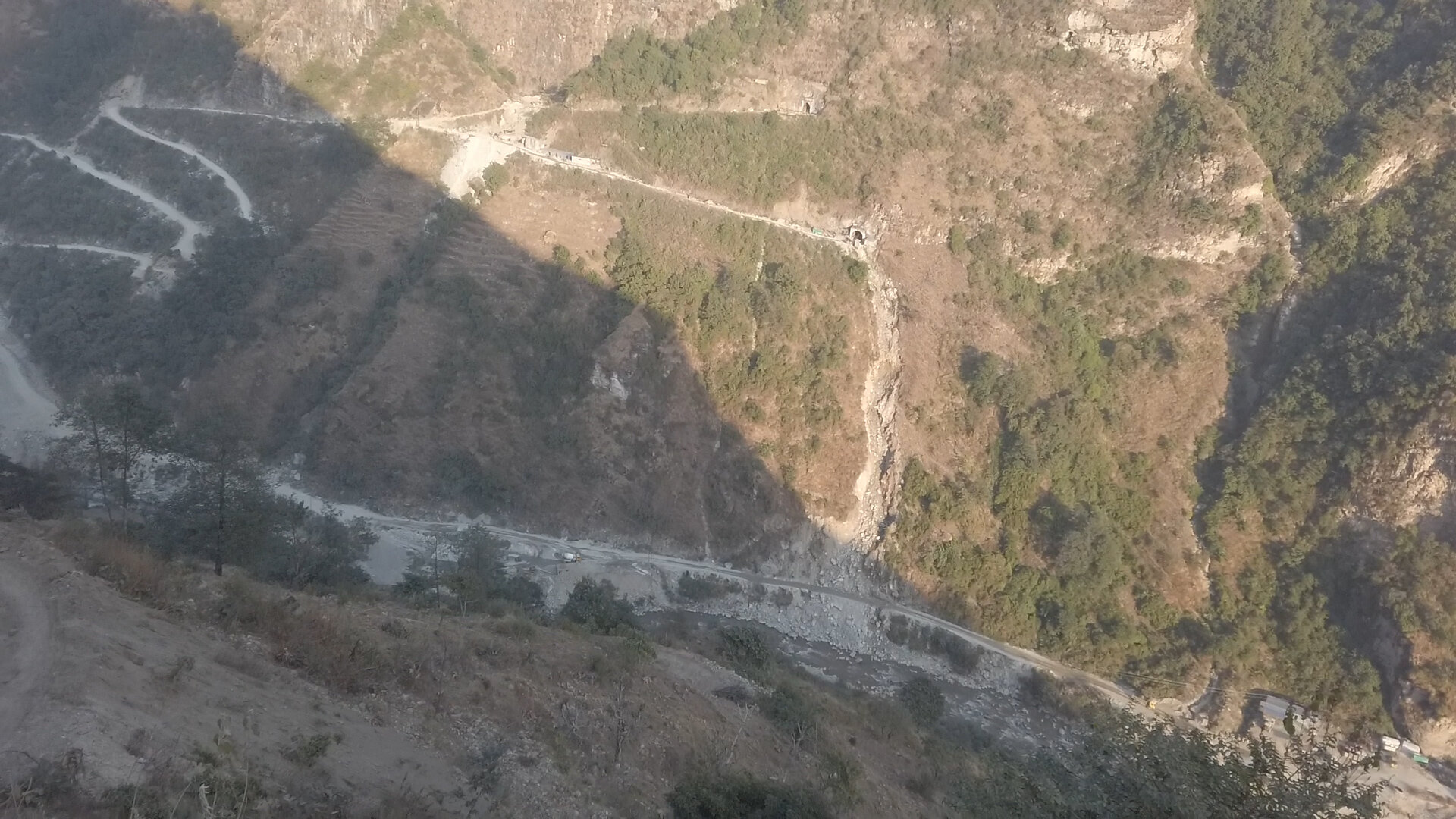
The vast majority of affected families speak Sunuwar and Sherpa languages as their mother tongues. Many have difficulty in expressing themselves in Nepali andall project related communication has been carried out in Nepali. The project authorities have not provided affected communities any information about the hydropower projects, its benefits, and impacts. Project representatives promised some people jobs, roads, schools, health facilities such as ambulances, and education facilities in their areas. But nothing has been provided yet.
The companies neither fulfilled FPIC nor made their reports public. The Ward Chairperson of Umakunda-3, Kubukasthali said, “We, the local authorities simply demand to the companies should follow the minimum standards set by the government of Nepal while constructing hydropower.”
The local communities also have asked to ensure their basic rights while undertaking development works on their lands, territories, and natural resources. But companies have used force and power through support from Ministers, the Chief District Officer, the police and have completed their construction work.
A few conditions created a favorable environment for the appropriation of land and resources including: Indigenous and local communities’ impoverishment and historical marginalization; lack of access to information and awareness about their rights; and the State’s failure to provide locals with basic services like health, education and drinking water facilities.
Law Breaking
The government of Nepal ratified the ILO Convention 169 in 2007 and also voted for the UN Declaration on the Rights of Indigenous Peoples (UNDRIP) in the same year. These international laws provision that before appropriating the natural resources in the Indigenous Peoples’ areas, the government and private companies are required to obtain the Free, Prior and Informed Consent of Indigenous Peoples impacted. When conducting consultations, if Indigenous Peoples say ‘no’ to the utilization of their land and natural resources, Indigenous Peoples should not then be displaced forcefully. In the case of Likhu River, the companies have failed to inform, consult, and obtain the consent of Indigenous Peoples and have and continue to appropriate the land and natural resources, violating international laws.
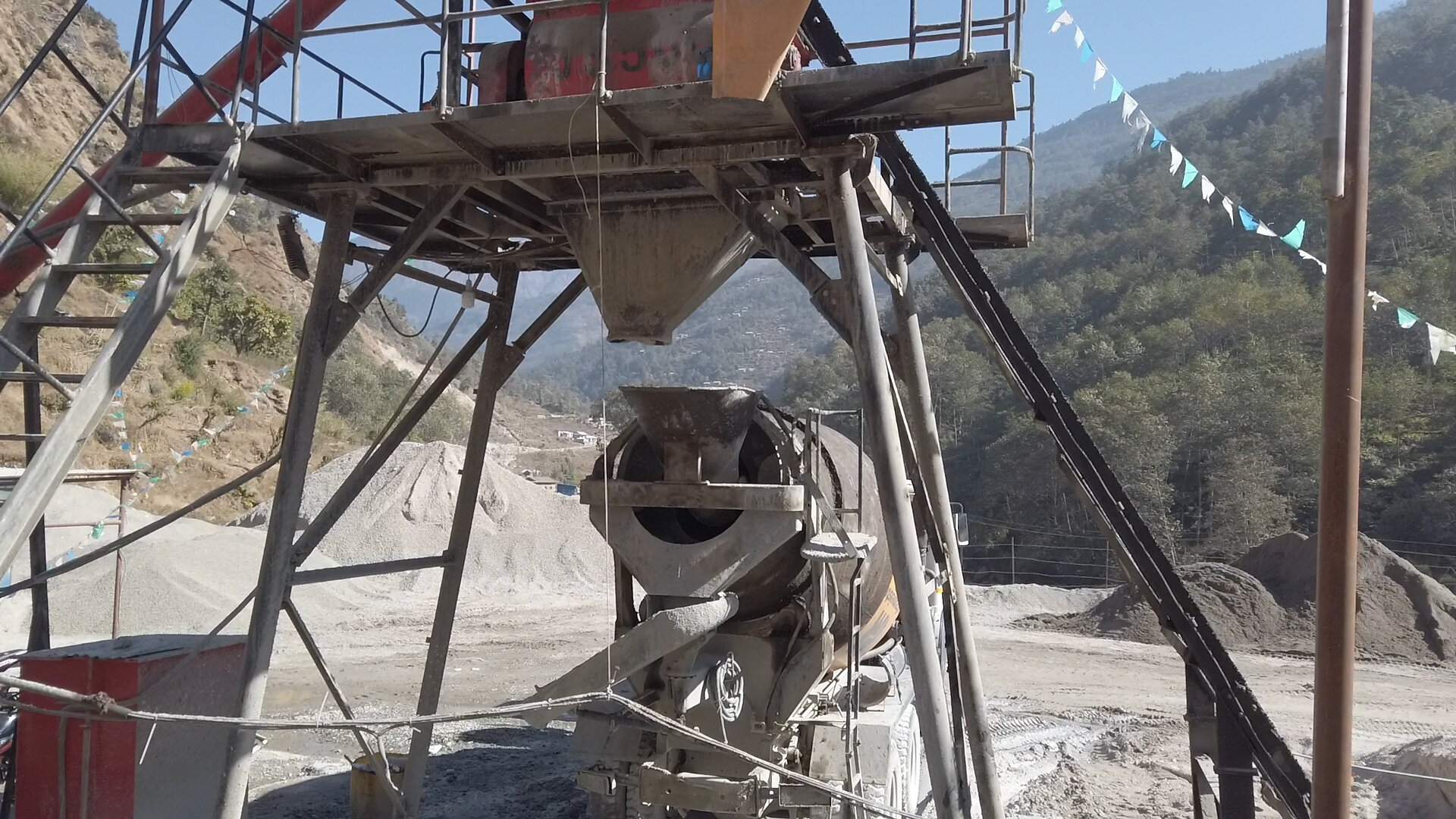
International laws have provisioned strong regulations to protect the interests of Indigenous and local communities affected by the hydropower projects by setting standards of benefit sharing and requiring access to information. Similarly, international laws have provisioned social and economic standards and corporate social responsibility as a part of business operations. Likewise, hydropower developers are required to implement impact mitigation measures, present Environment Impact Assessments (EIA) and Social Impact Assessments (SIA) to the local Indigenous communities in public hearings and compensate affected people for all harms and damages.
But to attract private and foreign investment in hydropower generation, in February 2016, the government of Nepal endorsed the National Energy Crisis Reduction and Electricity Development Decade Plan and introduced measures to overcome local communities resistance against hydropower projects and simplified the process of land acquisition, temporarily waiving the EIA and SIA requirement and limiting the benefits local people could expect to receive from new hydropower projects. These moves by the government of Nepal violate the 2015 Constitution of Nepal, especially Article 27, regarding rights relating to access to information, and Article 30 regarding the right to be compensated from environmental damage. Moreover, the government limited the power for granting licenses and royalties to the central government. Now, private companies have obtained support from a handful of political cadres and misappropriated the local resources.
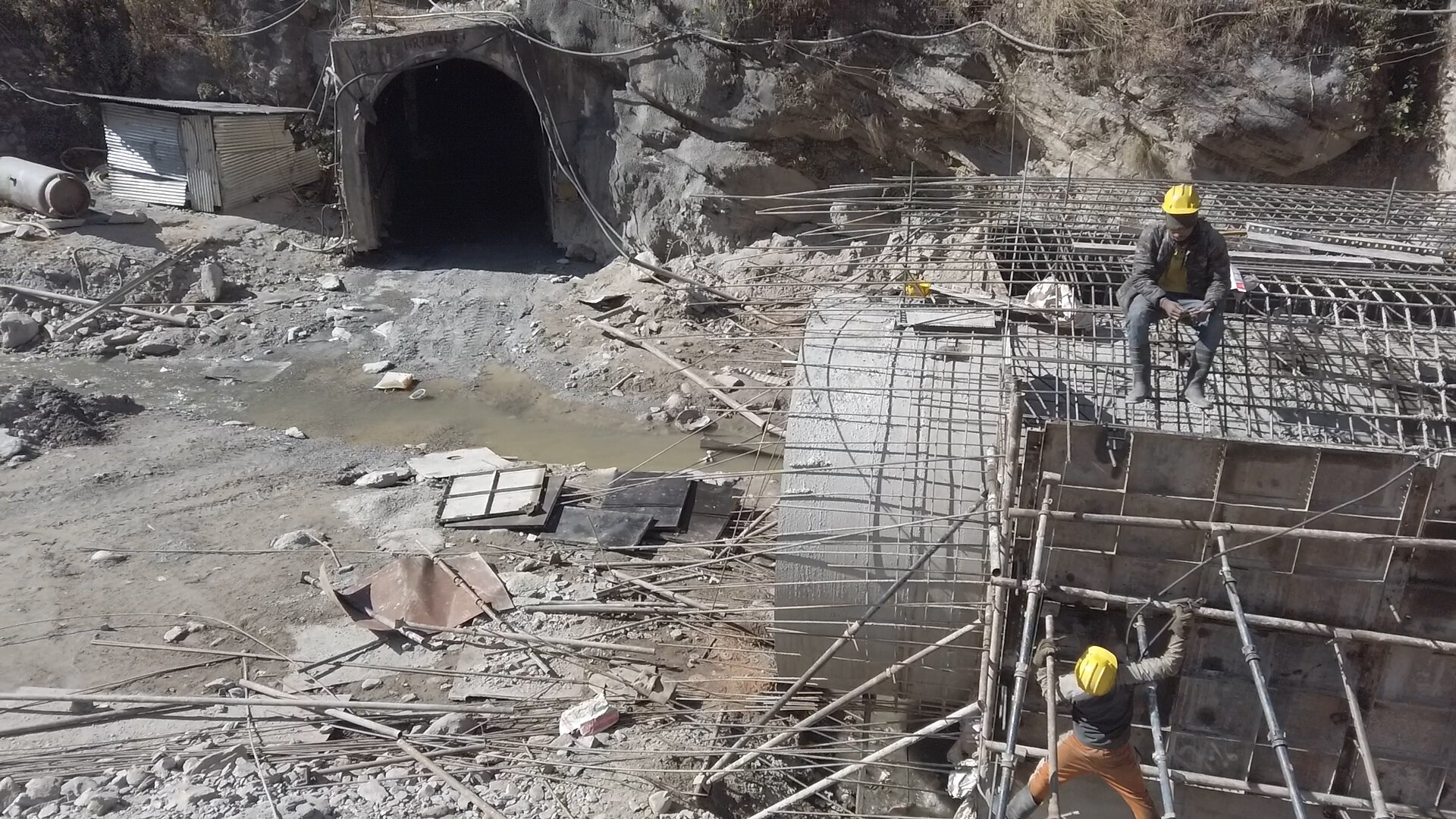
The hydropower projects on the Likhu River is only a case in point. There are 84 hydropower projects with a total capacity of 1,115 MW being carried out across the country. Similarly, some 217 hydropower projects with 7600 MW capacity have already obtained licenses and are set to start construction. All these hydropower projects are carried out on Indigenous lands where communities are often entirely dependent upon rivers for their livelihoods.
Concerns about Hydropower
Indigenous and local communities do not have many demands, they simply expect that companies undertake remedial actions against avoidable losses, pay fair compensation for losses, and provide further benefits to the locals. It appears that private investors have not been transparent with the impacted villagers in an effort to obtain their land for building infrastructures necessary for hydropower. A resident of Umakunda-3, Korandu, from Ramechhap district, Lok Bahadur Basnet said, “The company first said that they will provide compensation and clear up the debris stored on my land. I did not get any compensation nor was the debris on my land cleaned up.”
Similarly, another resident of Likhu Pikey-3, Dovan in Solukhumbu district, Bir Bahadur Sunuwar said, “The company first came and forced us to provide our land, we didn’t want to give our land. They lured us by promising to provide an ambulance, an education facility for children, a health facility, and a drinking water facility.” Gopi Lal Sunuwar from the same ward also has a similar story to tell. He said, “Company representatives first committed to give everything we wanted, so we gave our land. Three years have passed by, we got nothing yet, and neither have we seen them. If they appear here, we will take physical action against them.”
Another project affected a person from Likhu Pikey-3, Dovan in Solukhumbu district, Buddhi Sunuwar further said, “The company used our land to build tunnels. Because of this construction, there were landslides and damage to our crops. They have used our land, mostly my uncle’s land, but gave no compensation.”
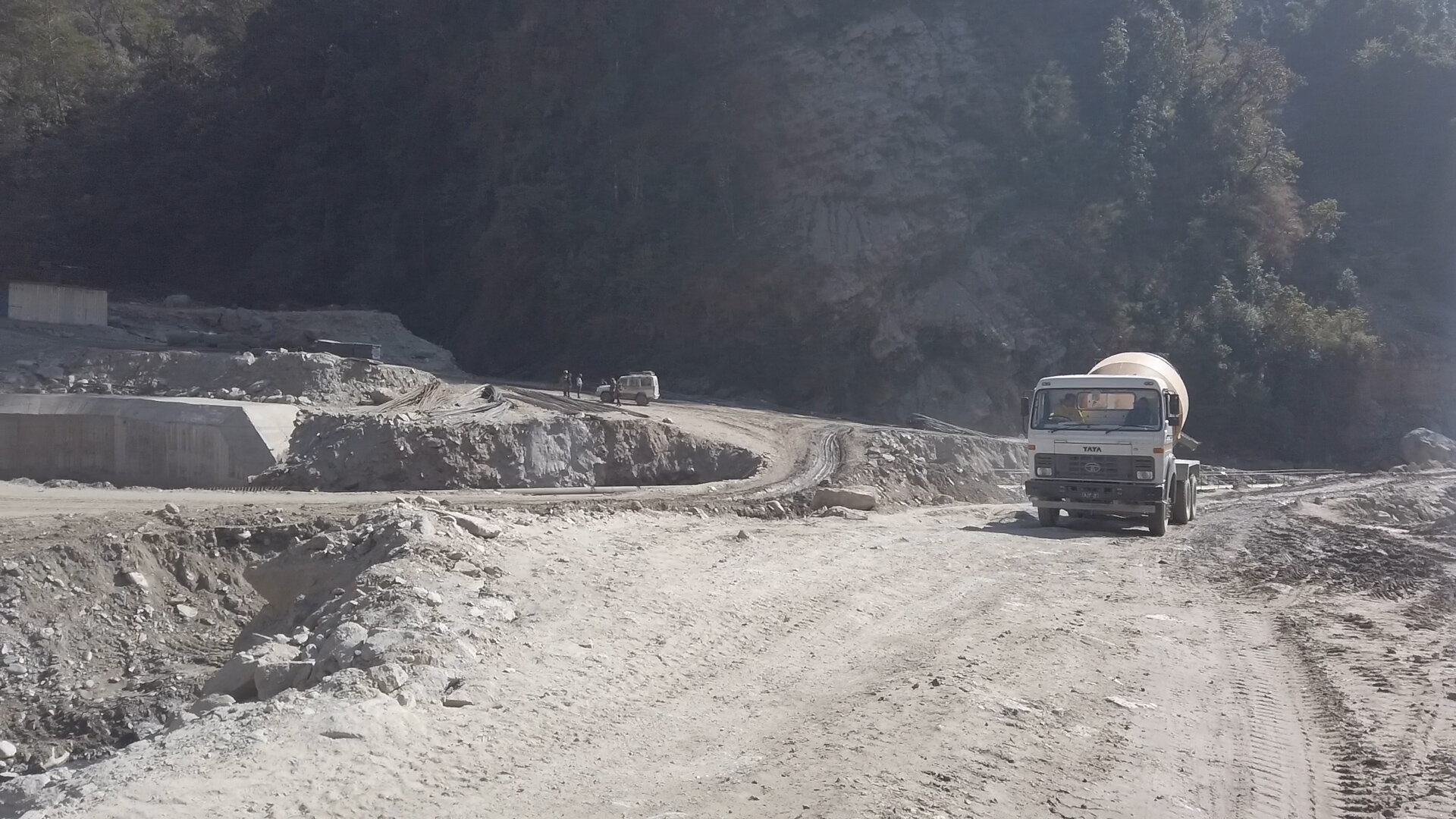
However, social mobilizer of Dugar Group from Umakunda-1, Gumdel, Bhimsen Basnet argued, “I have mostly received the concerns regarding damage caused by road construction and problems of drying of water sources due to erection of tunnels. We have built a water reservoir, distributed water pipes, and paid compensation to all locals.”
“I want my settlement guaranteed, whether by the rural municipality or the hydro company,” said Lal Bahadur Basnet further adding, “I have no formal education. I have had no access to information but I have been threatened with police force, and taken to the Chief District Office. I have been threatened with physical violence if I speak up against the hydropower project.”
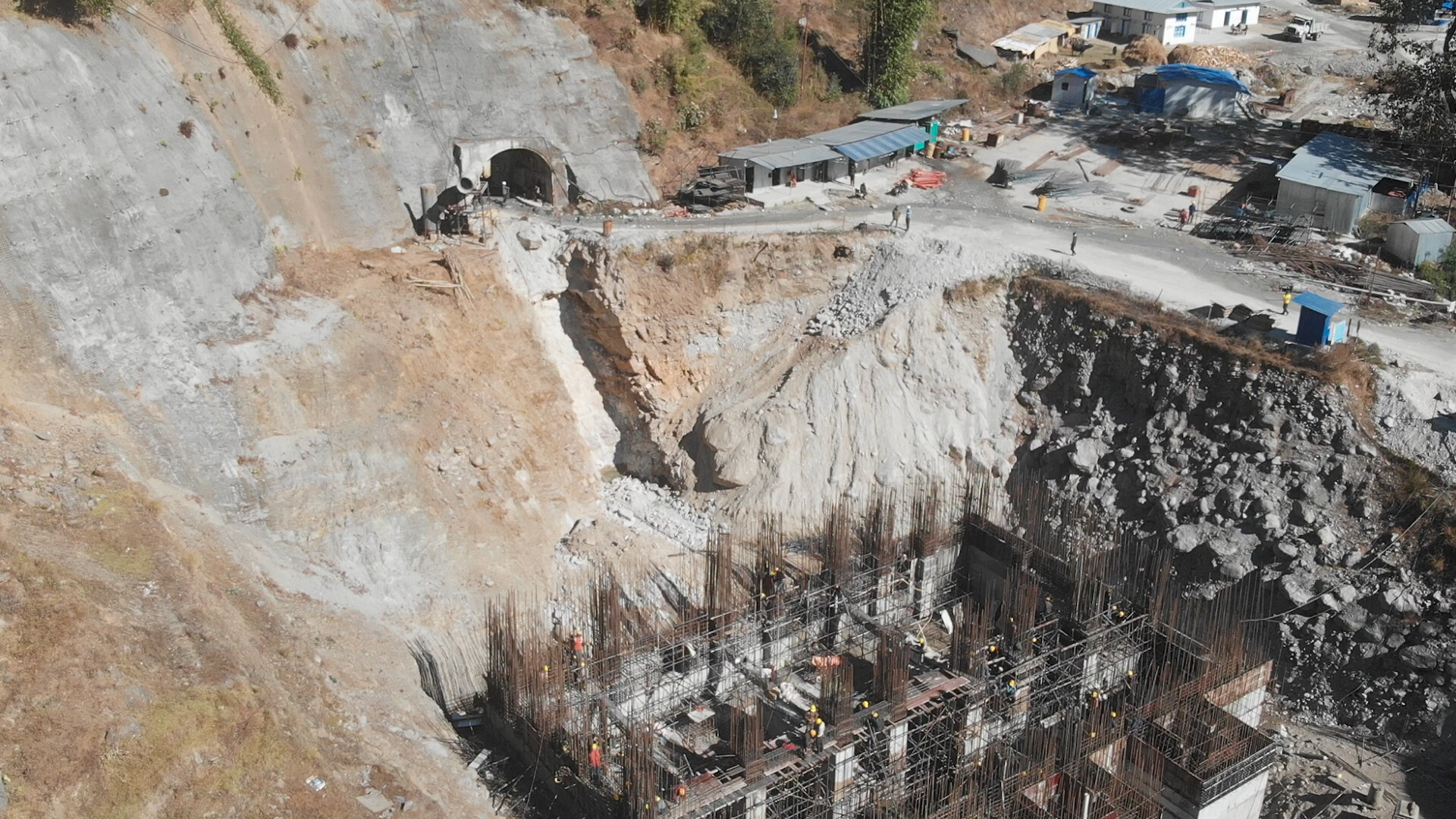
Sunuwar Indigenous Peoples have a sacred relationship with the Likhu River. Their relationship is like that between water and fish, but now because of these hydropower projects Sunuwar Peoples are likely to be driven off from their traditional lands and will face restrictions in accessing their natural resources. Sunuwar, Sherpa, and other local communities–Bahun and Chhetries, have deep ties to the Likhu River, land, forest and nature, which are reflected in their cultures, beliefs, and knowledge. The Likhu River is a sacred site for Sunuwar Peoples, used not only for the cremation of the deceased but also for cultural and healing activities. The Sunuwar have deep relationships and responsibilities to the river, caves, boulders,plants, and trees in these areas. Similarly, a number of Sunuwar sustain their lives by fishing and frog tapping. A special fish called “Neng” from the Likhu River is necessary in each and every Sunuwar cultural ritual, but it will be impacted by the interruption of the flow of the river due to the dam construction. This decline in fish populations will have long-term economic and socio-cultural effects on Sunuwar Peoples, as well as other local communities.
The Chairperson of Sunuwar Welfare Society Ward Chapter, Umakunda-3, Kubu-Kasthali Pabitra Sunuwar, says, “The hydropower projects have impacted all aspects of our lives, lifeways, and cultures. Our only demand is not monetary, none of us have demanded cash money. Our culture needs to be protected and companies have to compensate all those impacted for the damages they have incurred. Indigenous and local communities have the right to continue their cultures, lifeways, and to live as it was previously.”
Source: Cultural Survival

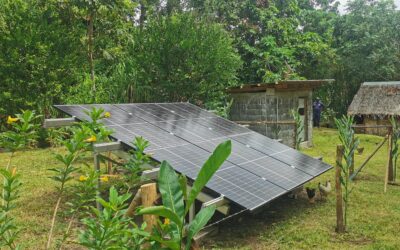
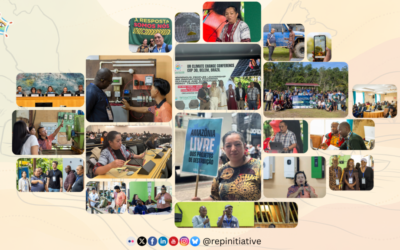
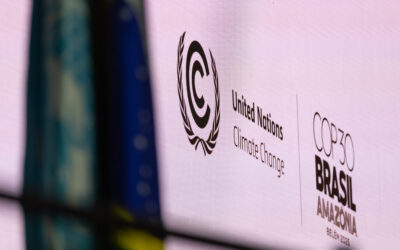
0 Comments